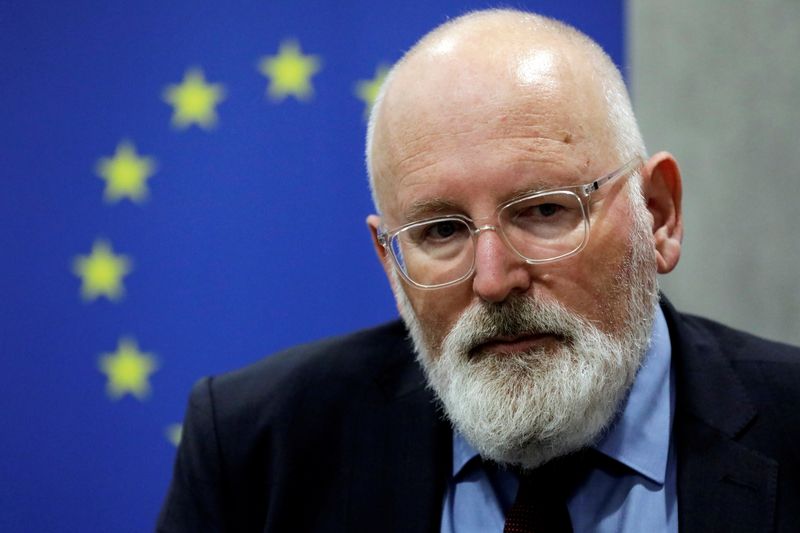By Kate Abnett and Will Russell
BRUSSELS (Reuters) - Negotiators at the U.N. climate summit are edging toward a compromise for a long-elusive deal on whether to tax global carbon markets to fund climate adaptation in poor countries, the European Union climate policy chief said.
Disputes over carbon markets have been a persistent sticking point in talks to cut greenhouse gas emissions and curb global warming, derailing the previous two U.N. climate summits.
Now around 200 countries at the United Nations summit in Glasgow, Scotland are approaching a Friday deadline to agree to the rules meant to put the 2015 Paris Agreement into practice.
Poor countries say a tax on carbon markets would provide critical support but rich nations, including EU members, are concerned it would impose unwelcome costs on participants.
"I think there is room to compromise on that," EU climate policy head Frans Timmermans told Reuters in an interview.
"But the next couple of days will show whether we can actually pull it off."
Timmermans did not say whether the compromise would involve any softening of the EU opposition to the proposal.
'VERY CLOSE' TO $100 BLN IN 2022
Developing countries and nations vulnerable to climate change impacts have been pushing for the levy to help them cope with increasingly destructive floods, droughts and rising seas.
They say siphoning money off a carbon market that some experts say could be valued at around $170 billion per year by 2030, would create a predictable stream of much-needed cash.
Rich nations have already failed to deliver promised climate finance, missing a 2020 deadline to transfer $100 billion a year to help the world's poorest nations cope with global warming, and instead expect to meet the pledge in 2023.
Timmermans said rich countries were "very close" to being able to deliver the $100 billion in 2022.
"Hopefully at the end of COP, we can conclude that we will be there next year, not in 2023," he said.

So far, of the nearly $80 billion rich countries contributed in 2019, only a quarter went on climate adaptation projects like storm shelters or defences against rising seas.
The EU this week pledged 100 million euros to a U.N. climate adaptation fund. Taken together, the EU and its 27 member states are the biggest contributor of climate finance.